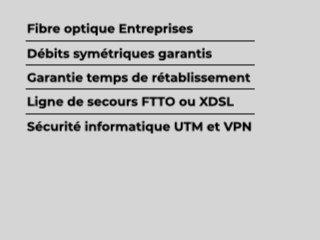By Rakin Azfar for Mobile Commerce Daily
As a watershed year for mobile commerce in all of its forms concludes, some experts have a clear vision on the platform’s year to come and distant future.
With huge progress in mobile commerce by online companies such as Amazon, many predicted that 2016 would be the year where retail heard the first echoes of bricks-and-mortar’s extinction. Instead, companies such as Walmart rolled out astounding advancements in mobile commerce, punctuating a year of mobile innovations in payments and merchandising with the acquisition of surging online retailer Jet.com.
Expect retail innovation in mobile to continue, and for experimentation with new technologies to expand further into the retail space.
“Here’s my view of the mobile atmosphere ten years from now: as the hardware gains in speed and processing power, so will the way users interact through mobile web, gaming, connected services, IoT, and apps in the mobile space,” said Marci Troutman, CEO of SiteMinis. “Think of the mobile device as an external hard drive for your brain, and accordingly, the way we interact with these devices can embed its use in our everyday lives.
“AI is the next big step and could be a very real integrated part of our society at this time.”
Mobile innovation
Some experts have more abstract concerns about mobile innovation, only natural for a platform that has had uptake rates as high as mobile has had in the past ten years. With IoT, location-based services and artificial intelligence expected to make waves this year, it is will be important to keep the people leveraging this tech in mind.
“Mobility permeates every aspect of our lives—mobility is transforming how we live, how we work, create and reap value, play, socialize, communicate, love, shop, share, learn, invest and more,” said Michael Becker, managing partner at mCordis and The Connected Marketer Institute. “Five years from now our lives will be centered around mobile access and the exchange of our digital selves; in fact, our digital selves will have more economic resonance and value than our physical selves.
“Our digital behavior will become a recognized medium of currency,” he said. “Brand marketing and retail will continue to evolve, with the biggest changes being that leading marketers will learn to deliver and compete on experiences and to bypass intermediaries and go over the top to be of service to individuals directly.
“Significant value will be created and exchanged, but there will continue to be significant confusion as industry and society look to manage issues like fraud, privacy intrusion, new regulations, security, social changes and ultimately what it means to respect and cater to the digital sovereignty of the individual. We’ll be challenged with managing what it means to move beyond terms of service and permission based engagements to terms of trust and informed access based engagements.”
Distant future
Cybersecurity is on the minds of nearly every forecaster working in mobile, with 2016 host to Yahoo’s disclosure of two of the largest data breaches in history and a hotly contested election process marred by cybersecurity concerns both domestic and abroad.
And, as a result of these high profile breaches, a new type of Dark Web transaction came into popular awareness: ones involving the market for data, valuable in both quantity and quality. Data from the Yahoo hacks were offered on the web for amounts up to $200,000.
We are still in the formative stages of cybersecurity best practices, and far from codifying them in policy. But this year served as a crucible in defining many of the issues facing both cybersecurity professionals and consumers, and in determining which of those two groups carries the onus for protection.
“Every citizen will need to take on more and more accountability for themselves; this will include developing a healthy respect for the value of their personal information and their cybersecurity,” Mr. Becker said. “We must learn to not give our digital selves way so freely.
The individual should not shoulder the entire burden for their cybersecurity; cybersecurity is a social issue that is impacting us all and industry players, including government, must stand up and be held accountable for their stewardship of the data their products and services generate and collect. The industry should continue to police itself; but I do expect new regulations to emerge as well, regulations that will help protect individuals around the world.”
And our experts both expressed excitement about the implications of more widespread virtual reality use in 2017, the platform being the subject of intense media interest last year from both content creators and business publications.
“Virtual reality is one of the most interesting technologies being deployed,” Ms. Troutman said. “It is not only an extremely cool entertainment experience, but there are many ways that brands and discovery apps can use it to enhance the relationship between users, digital and the environment.”
“I see augmented and virtual reality maturing and transforming so many of the interactions we have with the world,” Mr. Becker said. “We’ll also see continued evolutions with cloud computing, open APIs and new tools for producing and distributing content.
“In fact, over the next decade we’ll continue to see the growth of the Internet; the entire Internet may be restructured as content-centric networking (CNN) protocols, and frameworks are adopted en masse,” he said. “There are some amazing technologies that are emerging, technologies that will fundamentally transform society and commerce, starting with the emergence of personal information management services.
“These services will give individuals control and ownership over their personal data, and the ability to preserve digital sovereignty in pursuit of their personal, social and economic gains.”
, date: January 4, 2017 at 03:10AM, nom: Mobile – Luxury Daily, site: https://www.luxurydaily.com, tag: Mobile2.0, titre: Mobile trends for 2017 and beyondSource : https://www.luxurydaily.com/mobile-trends-for-2017...



 Accueil
Accueil


 TikTok is experimenting with a feature tha...
TikTok is experimenting with a feature tha...






